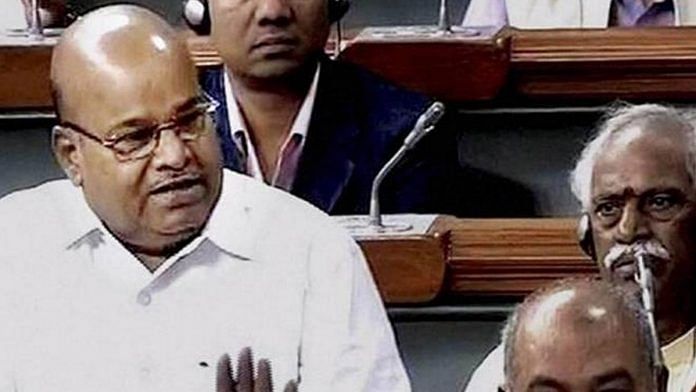New Delhi: The government has refused to share details of the decision-making process on quota for economically weaker section (EWS) citing a clause of the RTI Act that bars disclosure of records of cabinet papers and discussions by ministers.
Venkatesh Nayak, who works as Programme Coordinator, Access to information Programme with NGO Commonwealth Human Rights Initiative (CHRI), had sought details like copy of cabinet note on the matter besides correspondence received from the Prime Minister’s Office (PMO) in this regard.
The Centre has implemented 10 per cent reservation for economically weaker sections of the general category in central government posts and services from February 1, 2019, onwards.
In reply to Nayak’s RTI query, the Social Justice and Empowerment Ministry said the requisite information cannot be provided as it was exempted under Section 8 (1) (i) of the transparency law.
The Section bars disclosure of “cabinet papers including records of deliberations of the council of ministers, secretaries and other officers”.
However, the same clause, further says “Provided that the decisions of council of ministers, the reasons thereof, and the material on the basis of which the decisions were taken shall be made public after the decision has been taken, and the matter is complete, or over”.
Nayak said there is no press release about this subject on the website of the Press Information Bureau or the Social Justice and Empowerment Ministry.
“The government has denied to share the requisite information citing the Section 8 (1) (i) of the RTI Act. However, the exemption relating to cabinet papers- which the officer concerned has quoted in his reply itself permits the disclosure of all the information I had sought, after the matter is complete or over.
“The 10 per cent quota amendment has already come into force. Nevertheless, the officer (who has replied to the applicant) seems to think that the matter is neither complete or over,” Nayak said.
He also cited a June 12 decision by the transparency watchdog Central Information Commission (CIC) in which a direction was issued for the government departments to put in public domains all cabinet papers and materials related to bills tabled in Parliament.
“I will appeal against the denial of the information,” Nayak said.
According to an order by the Ministry of Social Justice and Empowerment, persons who are not covered under the existing scheme of reservations for Scheduled Castes, Scheduled Tribes and socially and educationally backward classes and whose family has gross annual income below Rs 8 lakh are to be identified as EWSs for the benefit of reservation.




Earlier in the day, a minister, in reply to a question, had stated that no such proposal was under the government’s consideration. Decision making at the speed of thought.